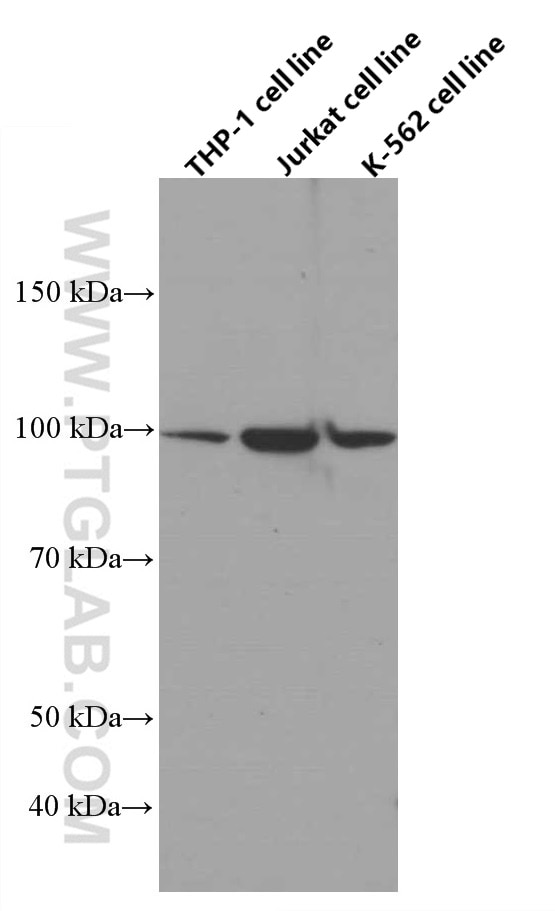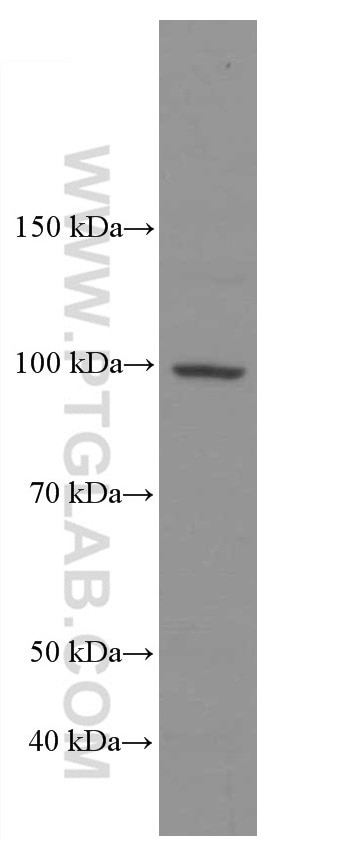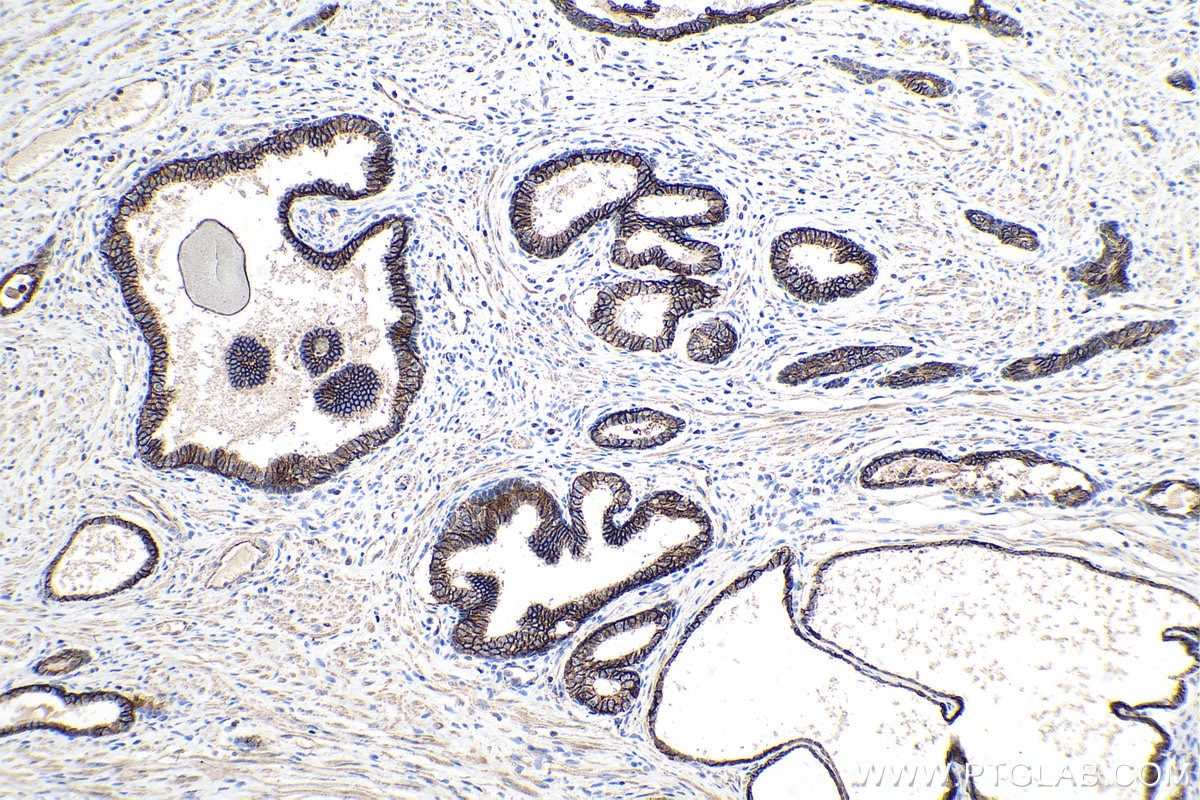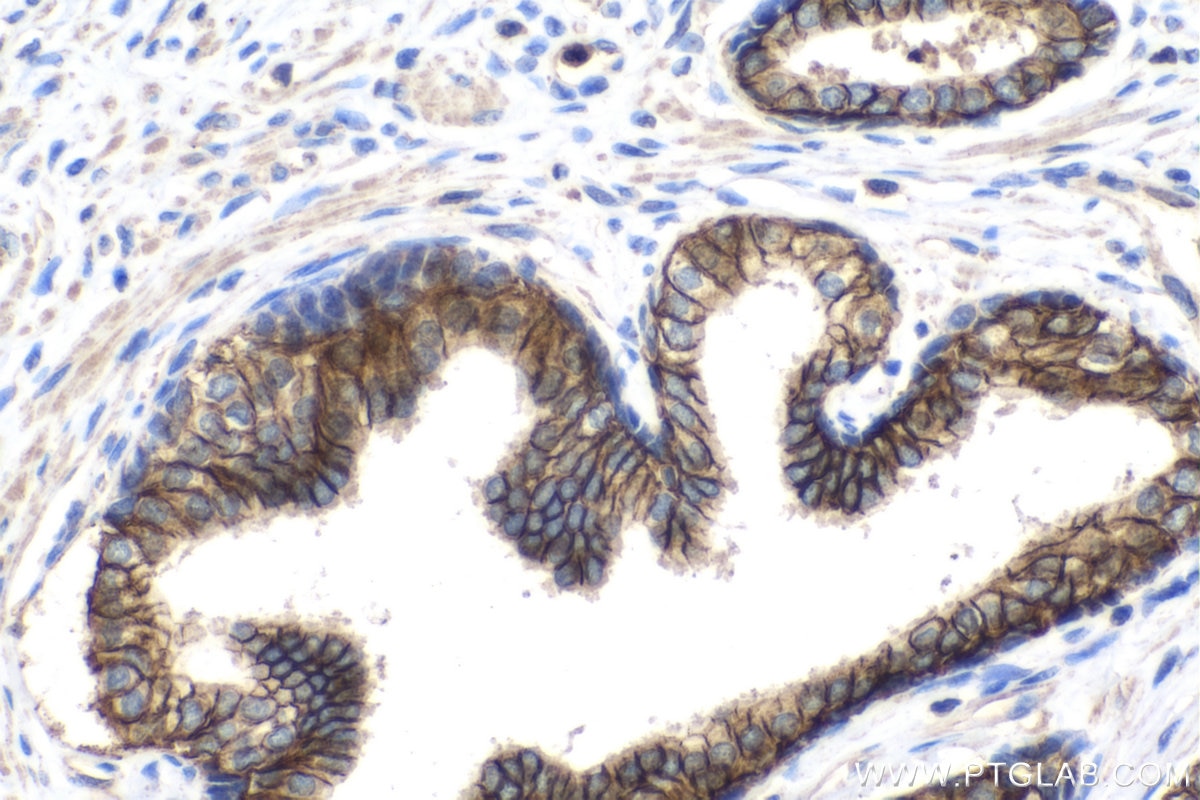Tested Applications
| Positive WB detected in | THP-1 cells, MCF-7 cells, Jurkat cells, K-562 cells |
| Positive IHC detected in | human prostate cancer tissue Note: suggested antigen retrieval with TE buffer pH 9.0; (*) Alternatively, antigen retrieval may be performed with citrate buffer pH 6.0 |
Recommended dilution
| Application | Dilution |
|---|---|
| Western Blot (WB) | WB : 1:1000-1:6000 |
| Immunohistochemistry (IHC) | IHC : 1:1000-1:4000 |
| It is recommended that this reagent should be titrated in each testing system to obtain optimal results. | |
| Sample-dependent, Check data in validation data gallery. | |
Published Applications
| KD/KO | See 1 publications below |
| WB | See 1 publications below |
Product Information
66620-1-Ig targets ADAM10 in WB, IHC, ELISA applications and shows reactivity with Human samples.
| Tested Reactivity | Human |
| Cited Reactivity | human, mouse |
| Host / Isotype | Mouse / IgG1 |
| Class | Monoclonal |
| Type | Antibody |
| Immunogen | ADAM10 fusion protein Ag23062 Predict reactive species |
| Full Name | ADAM metallopeptidase domain 10 |
| Calculated Molecular Weight | 748 aa, 84 kDa |
| Observed Molecular Weight | 90-95 kDa |
| GenBank Accession Number | BC126253 |
| Gene Symbol | ADAM10 |
| Gene ID (NCBI) | 102 |
| RRID | AB_2881980 |
| Conjugate | Unconjugated |
| Form | Liquid |
| Purification Method | Protein A purification |
| UNIPROT ID | O14672 |
| Storage Buffer | PBS with 0.02% sodium azide and 50% glycerol , pH 7.3 |
| Storage Conditions | Store at -20°C. Stable for one year after shipment. Aliquoting is unnecessary for -20oC storage. 20ul sizes contain 0.1% BSA. |
Background Information
ADAM10, a member of the ADAM (a disintegrin and metalloprotease) family, is widely expressed in the brain, the spinal cord, and the visual system during development.MW of premature ADAM10 is 90 kDa and mature ADAM10 is 60-70 kDa (PMID: 24404179).
Protocols
| Product Specific Protocols | |
|---|---|
| WB protocol for ADAM10 antibody 66620-1-Ig | Download protocol |
| IHC protocol for ADAM10 antibody 66620-1-Ig | Download protocol |
| Standard Protocols | |
|---|---|
| Click here to view our Standard Protocols |
Publications
| Species | Application | Title |
|---|---|---|
Arch Biochem Biophys Maresin1 restrains chronic inflammation and Aβ production to ameliorate Alzheimer's disease via modulating ADAM10/17 and its associated neuroprotective signal pathways: A pilot study
|









